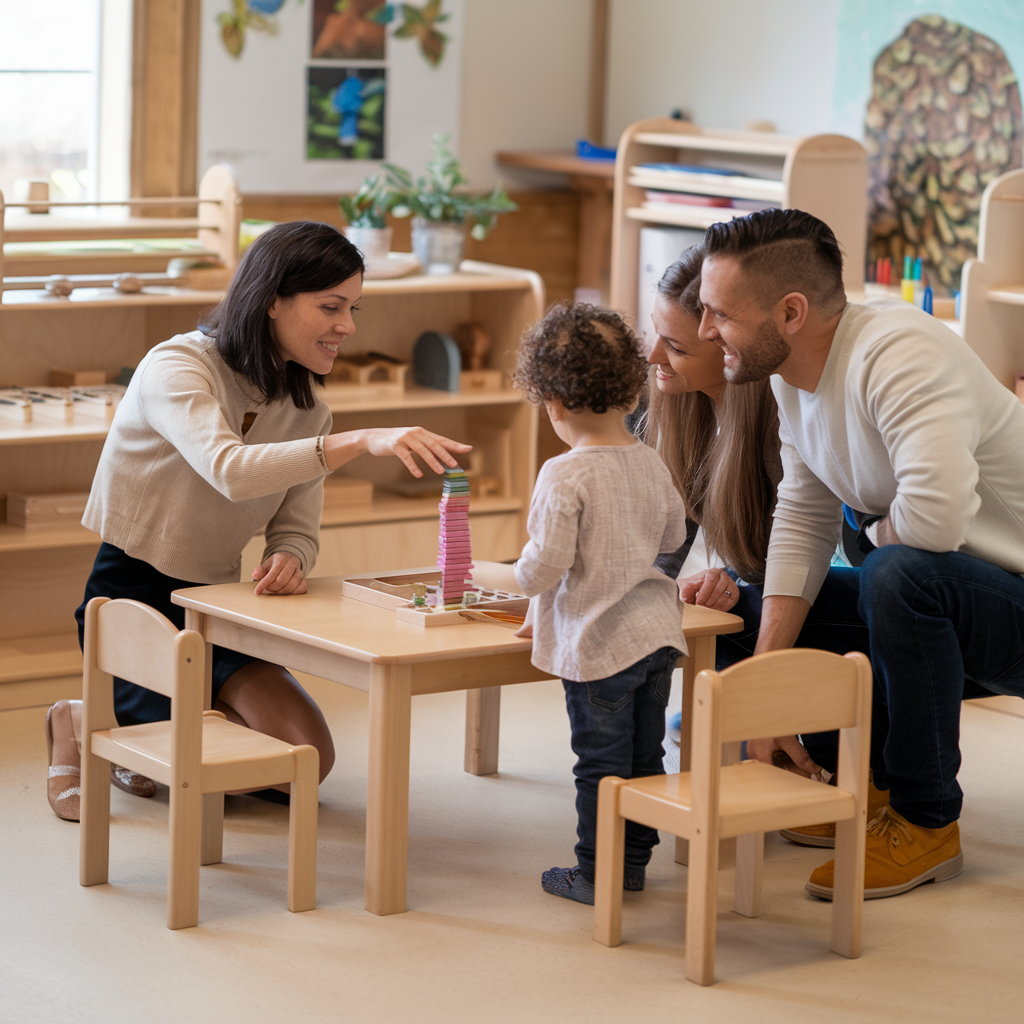
The Role of Parents in Early Childhood Education: A Partnership for Success
Zainub Kara
In the world of Montessori education, the role of parents extends far beyond simply dropping off and picking up their children. It’s a dynamic partnership that significantly enhances a child’s educational journey and overall development. Let’s explore how parental involvement can transform the Montessori experience and create a strong foundation for lifelong learning.
The Montessori-Parent Partnership
Montessori education is unique in its approach, emphasizing independence, self-directed learning, and holistic development. For this method to truly flourish, it requires a strong alliance between the school and home environments. Here’s how this partnership works:
- Consistent Approaches
When parents understand and apply Montessori principles at home, it creates a seamless learning experience for the child. This consistency reinforces the skills and behaviors learned in the classroom, making them a natural part of the child’s life. - Open Communication
Regular dialogue between parents and educators ensures that a child’s individual needs, progress, and challenges are addressed promptly and effectively. This open line of communication allows for personalized learning strategies that cater to each child’s unique developmental path. - Shared Observations
Parents provide valuable insights into their child’s behavior, interests, and challenges outside the classroom. This information helps educators tailor their approach and create a more effective learning environment.
Enhancing the Montessori Experience Through Parental Involvement
- Home Environment
Parents can create a Montessori-inspired home setup that encourages independence and exploration. This might include child-sized furniture, easily accessible learning materials, and spaces for practical life activities. - Reinforcing Skills
By understanding the Montessori curriculum, parents can reinforce learning at home. For example, involving children in cooking can support math skills, while nature walks can enhance scientific observation. - Respecting the Child’s Work
Montessori emphasizes the importance of concentration and completing tasks. Parents can support this by allowing children to focus on activities without interruption and giving them time to solve problems independently. - Volunteering and Participation
Many Montessori schools welcome parent volunteers for various activities. This involvement not only supports the school but also gives parents a deeper understanding of the Montessori method in action.
Ensuring Holistic Development
The parent-school partnership in Montessori education goes beyond academic achievement. It focuses on nurturing every aspect of a child’s growth:
- Social-Emotional Development
Parents and educators work together to foster emotional intelligence, empathy, and social skills. Consistent approaches to conflict resolution and expressing emotions create a supportive environment for social-emotional growth. - Cultural Awareness
Parents can share their cultural traditions and experiences, enriching the diverse learning environment that Montessori classrooms strive to create. - Physical Development
Collaboration on nutrition, sleep habits, and physical activities ensures that children’s basic needs are met, allowing them to fully engage in learning. - Creativity and Critical Thinking
Parents can extend classroom learning by encouraging open-ended play, art projects, and problem-solving activities at home.
The Benefits of Strong Parent-School Partnerships
- Improved Academic Outcomes
Research consistently shows that children perform better academically when their parents are actively involved in their education. - Enhanced Confidence and Self-Esteem
When children see their parents valuing and participating in their education, it boosts their confidence and motivation to learn. - Smoother Transitions
Strong partnerships make transitions (such as moving to a new class or school) easier for children, as there’s consistency and support from both home and school. - Lifelong Love for Learning
When parents and educators work together to create positive learning experiences, children are more likely to develop a lifelong passion for learning and exploration.
The role of parents in Montessori education is not just important—it’s essential. By actively participating in their child’s educational journey, parents become co-creators of a rich, nurturing environment that supports holistic development. This partnership between home and school sets the stage for children to become confident, independent, and lifelong learners.
Remember, every small effort to engage with your child’s Montessori experience contributes to their growth and success. Whether it’s applying Montessori principles at home, volunteering at school, or simply maintaining open communication with educators, your involvement makes a world of difference in your child’s educational journey.
